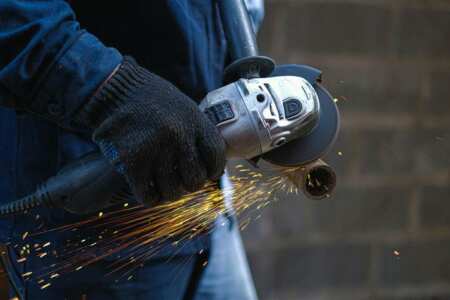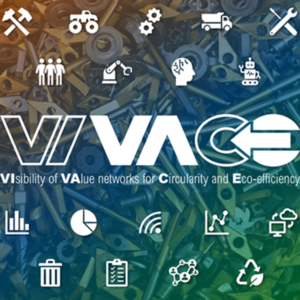MATTER – Maintenance of Battery Production
En hållbar batterisektor i Sverige genom effektivt underhåll av framtidens batteriproduktion.
2022 – 2023


Project time: 2024 – 2027
Budget: 6 900 000
Circular handheld machines; from an environmental and human perspective (Zero Vibration Circularity)
Circular business models are based on long product life and a high degree of use of products with reduced environmental and climate impact. These business models are often considered to entail higher business risks as expected income is spread out over a longer period of time. Today’s products are usually not adapted to circular business models, but designed in such a way that they risk becoming unattractive, out-of-date and wear out or break down prematurely. “Future adaptive design” can lower the business risks in circular business models through a product design that enables an extended lifespan through robustness, flexibility and upgradeability. The innovation of the project is to apply this methodology to a group of hand-held machines in the manufacturing industry. The key to designing future-adaptive products is a “future-open” product architecture. This means a product adapted from the outset to be easily repaired, replace components that are upgraded over time when new needs arise. The goal of the project is to apply future-adaptive design to both existing machines in the industry and newly developed machines, to benefit both climate, environment and social sustainability. This is done for three handheld machine types. These have been chosen as a strong driving force for the project is the new machinery regulation that was decided by the EU in 2023. A big difference is that now it is stated that high-frequency shock vibrations also must be declared.
Vinnova dnr: 2024-00800
En hållbar batterisektor i Sverige genom effektivt underhåll av framtidens batteriproduktion.
2022 – 2023

Supporting manufacturing companies’ sustainability journey through circularity and eco-efficiency
2023 – 2025

The REWIND project combines the principles of lean production and eco-efficiency in three industry pilots at Stena Recycling, Volvo AB and IKEA GreenTech. The objective is to retain the value embedded in materials with circular strategies (reuse, remanufacture, recycle, repurpose, etc.). Lessons learnt from the pilots will be used to develop educational tools for engineers and industry leaders to accelerate the uptake of best practices for circularity and sustainable production.
2019 – 2022
The project aims at radically improving the working environment and the employee security within the heavy manufacturing industries by using and adapting the latest technology for low and ultraprecise positioning and decision support systems. The target is to increase security and safety by adapting the decision-support and positioning system for the heavy manufacturing industries.
2017 – 2018
LOVIS4C – explore supply chain visibility as enabler of circularity
2022 – 2023
